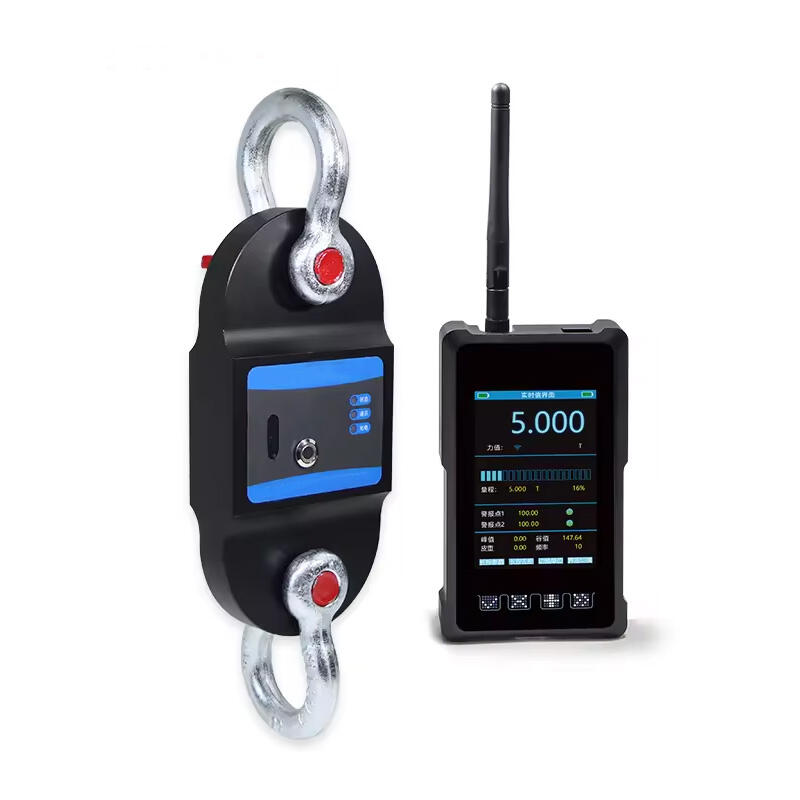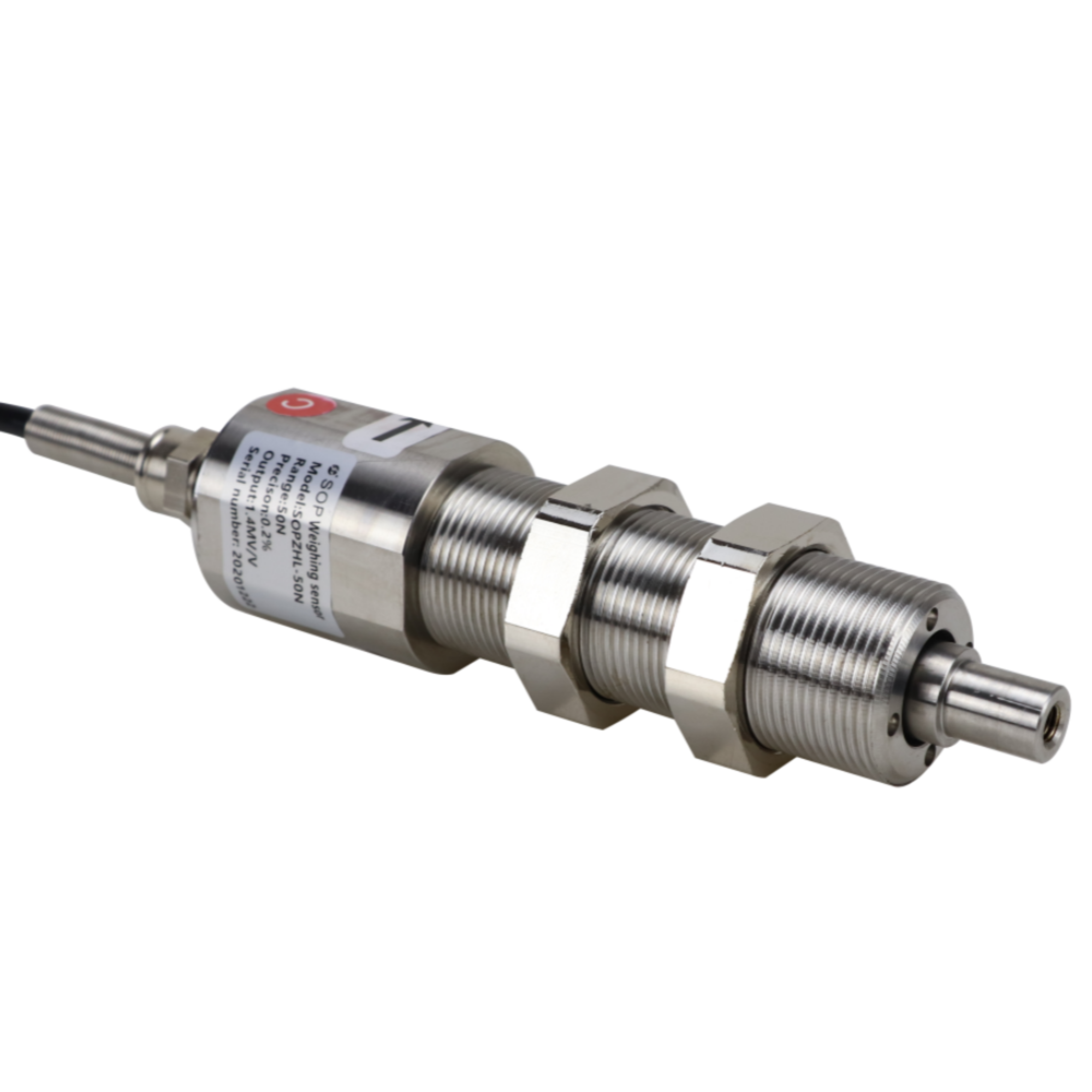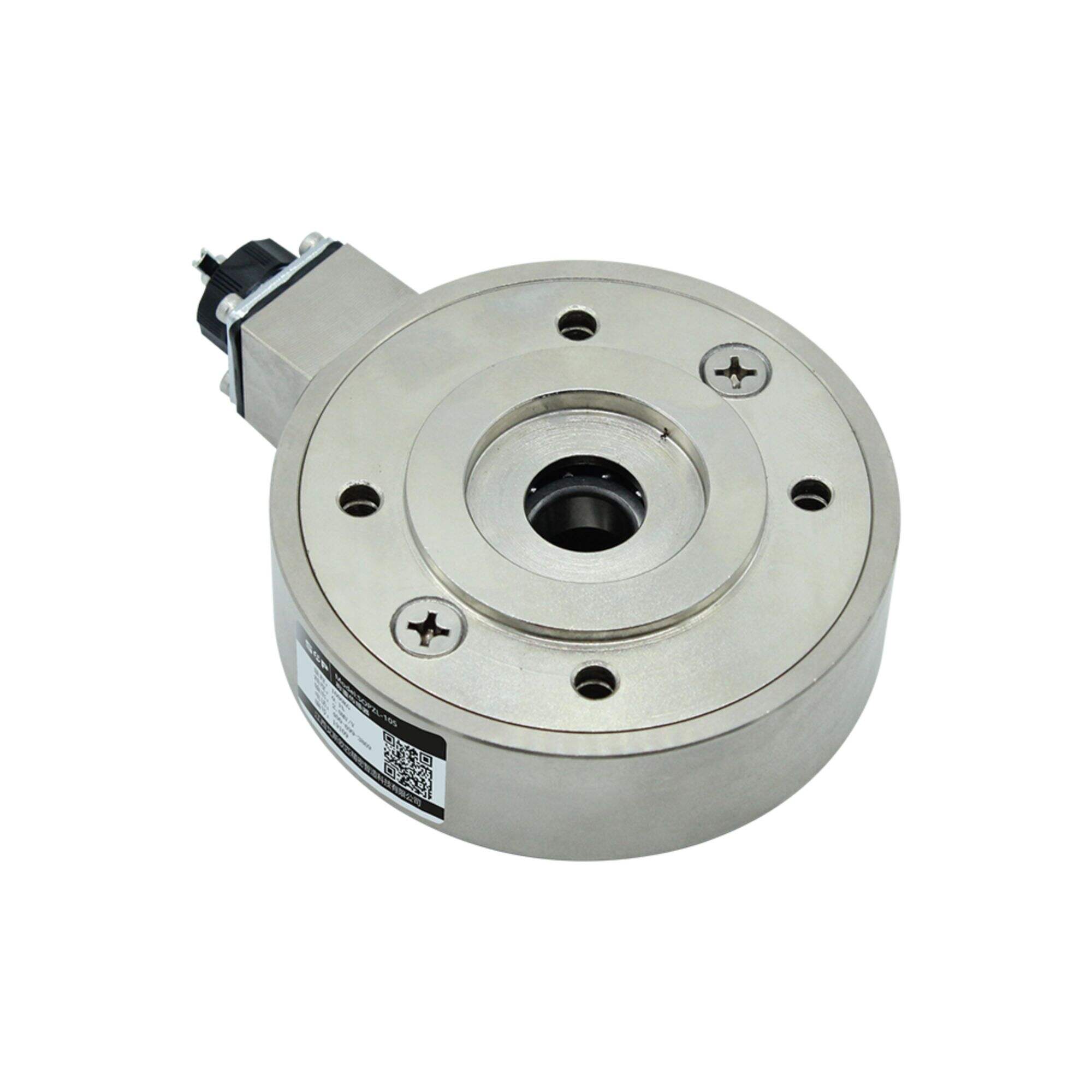D) Un capteur de force est un dispositif spécial conçu pour noter l'espace d'énergie. Définition : La force n'est qu'une poussée ou une traction appliquée à un objet. Cela peut nous assurer de la pesée elle-même, qui est une mesure de combien pèse un objet particulier ; et les cellules de charge sont simplement des dispositifs distincts qui indiquent le poids - ou plus précisément la masse de ces objets. Ces deux instruments sont très utiles pour effectuer de nombreuses mesures de charge et de pression dans diverses situations.
De nombreuses tâches dans de nombreux secteurs nécessitent l'utilisation de capteurs de force et de cellules de charge. Ils mesurent la pression, le stress, la contrainte et la force. Types de capteurs de force, en diverses tailles. Cela inclut les systèmes hydrauliques, où un liquide est utilisé ; pneumatiques, utilisant de l'air ; et électroniques qui utilisent l'électricité. Chaque type sert à une variété d'objectifs et peut se révéler extrêmement utile pour de nombreux travaux. Dans une usine, les cellules de charge sont également très utiles pour déterminer le poids des articles tels que les produits secondairement transformés. Par exemple, les usines alimentaires les utilisent pour peser les ingrédients ; la médecine utilise des balances et des plateaux pour mesurer la dose en fonction du rapport poids/taille souhaité (un dixième de milligramme correspond à des parties/pièces égales) ; les chantiers de construction ont besoin d'un équilibre entre les poids de distribution normale ou spécifiques afin que les matériaux soient pesés correctement.
Ceci peut mesurer la charge et la pression de manière précise dans les usines. Toute erreur, aussi petite soit-elle, peut entraîner d'énormes problèmes et coûter beaucoup de revenus. Une mesure incorrecte peut conduire à ce qu'une usine utilise plus de matériaux qu'il n'en faut ou fabrique des produits dangereux. Comme les capteurs de force et les cellules de charge fournissent des mesures très précises, elles permettent aux usines de fonctionner de manière plus efficace, ce qui se traduit également par des économies de coûts. Offrir un moyen de garantir la précision de ces données donne confiance aux travailleurs, mariant précision avec rapidité et automatisation.

Cela vous permet de garantir de bons résultats que ces outils peuvent offrir, et cela signifie savoir comment associer la cellule de charge et le capteur de force. Cela signifie que la capacité de la cellule de charge doit être appropriée pour accepter la bonne pression, qu'elle mesurera, et que le capteur de force doit être configuré en fonction des papiers nécessaires. Si un capteur de force et une cellule de charge sont bien connectés, ils fournissent de meilleures mesures; avec la possibilité de produire ainsi des produits de meilleure qualité. Ils causent des problèmes dans la production s'ils ne collaborent pas bien, d'où l'importance de trouver une paire parfaite.

Les capteurs de force et les cellules de charge ont révolutionné le fonctionnement des usines de nombreuses manières. Ils accélèrent le processus et aident à réduire les coûts de production. La précision dans ces applications est essentielle car elle permet de gouverner les installations. Ils seront efficaces pour examiner les solutions, par exemple, détecter des bogues ou des problèmes dans la fabrication des produits... Utiliser moins de matériaux et produire mieux ! Ces outils aident les usines à réduire les déchets, à améliorer la sécurité et la qualité des produits qu'elles fabriquent.

Si vous travaillez dans la construction ou la production alimentaire, alors les capteurs de force et les cellules de charge vous seront familiers, car ils sont des outils essentiels pour divers travaux dans ces industries. Ils utilisent une technologie intelligente pour fournir des mesures précises, facilitant ainsi et réduisant le coût de production de n'importe quoi. Tous ces outils fonctionnent ensemble pour équilibrer la quantité exacte de charge ou de contrainte qui entre en jeu pour créer une relation directe avec les bons produits et résultats.
Nos produits principaux sont composés de différents types de capteurs, tel que le capteur de force et le capteur de déplacement à cellule de charge à fil tiré CAPTEUR LVDT , cellule de charge, capteur de torsion, capteur magnétique, capteur de pression, etc. Nous proposons des services OEM/ODM en fonction des besoins du client.
Nous sommes certifiés CE, RoHS ISO9001. Nous garantissons que chaque article subit une inspection rigoureuse avant la cellule de charge et le capteur de force. SOP dispose également d'ingénieurs qui peuvent offrir un service après-vente pour résoudre tout problème lié au produit.
Le SOP dispose d'une expérience de production de plus de 20 ans et a travaillé avec plus de 5000 clients mondiaux. C'est une entreprise de capteurs de force et de cellules de charge qui fabrique des produits haute technologie et est impliquée dans la recherche, le développement et la production, ainsi que dans la vente et l'entretien de divers types de capteurs.
Nous offrons un emballage sûr et sécurisé pour chaque article, avec une expédition accélérée et une livraison en 2 jours pour les capteurs de force et cellules de charge en stock. Il existe plusieurs services de livraison dont le client peut choisir. Après l'envoi, vous serez fourni avec les informations de suivi.